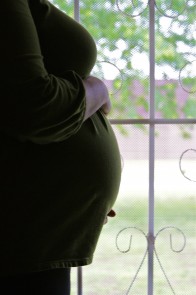Abortion rights, women of color, and LGBTQI+ people are under attack. Pledge to join us in fighting for gender justice.
#WinsForWomen: Pregnancy Accommodation Bills Advance in 4 States—Some Politicians Do Still Care about Pregnant Women!


In the last few weeks we have heard a lot of male politicians saying pregnant women just don’t matter. Some politicians don’t think insurance plans should have to cover prenatal or maternity care because it doesn’t benefit men—seemingly forgetting where they came from. And others think that if a pregnant worker can’t get a simple accommodation at work so she can continue working safely, “It’s not prison. [She] can quit!” You know, because losing income at the exact moment your family and financial needs are growing is not at all devastating and finding a job while pregnant is oh so easy.
But hey—I have some good news—there are some legislators out there—in progressive and conservative states—that do still care about pregnant women and healthy pregnancies:
New Mexico Pregnancy Accommodation Bill on to Governor after Passing Legislature
As I previously reported, the New Mexico state House passed a bill (HB 179) requiring employers to make reasonable accommodations for pregnant workers who need them. On March 18, the New Mexico Senate passed the bill and now it is before Governor Susana Martinez for her signature. This bill is incredibly important because too often when pregnant workers ask for modest accommodations recommended by their doctors, like a stool to sit on or the right to drink water during a shift, they are instead forced onto unpaid leave or even fired. Being forced out of a job or on to leave at the very moment their financial needs are growing can be calamitous for pregnant workers and their growing families. And pregnant workers who are denied workplace accommodations for which they have a medical need may be at risk of pregnancy complications, such as preterm birth, miscarriage, congenital anomalies, and low birth weight.
The Governor has until April 7 to sign or veto the bill. If you are in New Mexico, urge the Governor to sign the bill because no one should be forced to choose between her job and the health of her pregnancy.
Vermont House Passes Pregnancy Accommodation Bill
Just this last Wednesday, March 22, the Vermont House also passed a bill (H. 136) requiring reasonable accommodations for pregnant workers who need them. The bill passed by a vote of 97 to 44 picking up bipartisan support on its way to the Senate. The National Women’s Law Center had the opportunity to testify in support of the bill.
Washington House and Senate Unanimously Pass Pregnancy Accommodation Bills
On March 1, the Washington state House passed a bill (HB 1796) requiring reasonable accommodations for pregnant workers who need them with a unanimous vote of 98-0! And on March 8, the Washington Senate passed a similar bill (SB 5835) requiring reasonable accommodations for pregnant workers. This bill also passed with unanimous support!
South Carolina Subcommittee Approves Pregnancy Accommodation Bill
And proving that workplace accommodations for pregnant workers is a common sense, common ground issue—just yesterday, March 28, the South Carolina House Judiciary Committee unanimously passed out of the committee a bill (H. 3865) requiring reasonable accommodations for pregnant workers who need them. This bill was introduced by a bipartisan group of legislators and those testifying in support of the bill at the subcommittee hearing included the March of Dimes, the American Congress of Obstetricians and Gynecologists, and the Palmetto Family Council—an anti-abortion organization. The National Women’s Law Center also submitted testimony in support of the bill.
If these bills pass, pregnant workers in 22 states will have crucial protections to ensure their pregnancies remain healthy and they can remain on the job.
Currently, eighteen states and the District of Columbia have passed laws to explicitly grant pregnant employees the right to accommodations at work. Twelve states—from Nebraska to New York, and North Dakota to West Virginia—and the District of Columbia have passed these laws since 2013, all with bipartisan support, and in the majority of cases, with unanimous or near-unanimous support.
The momentum for these common sense protections is clear, but the ignorant comments made by several male politicians over the last few weeks is a reminder that we still have a lot of educating to do to make sure that pregnant workers get fair treatment at work.





